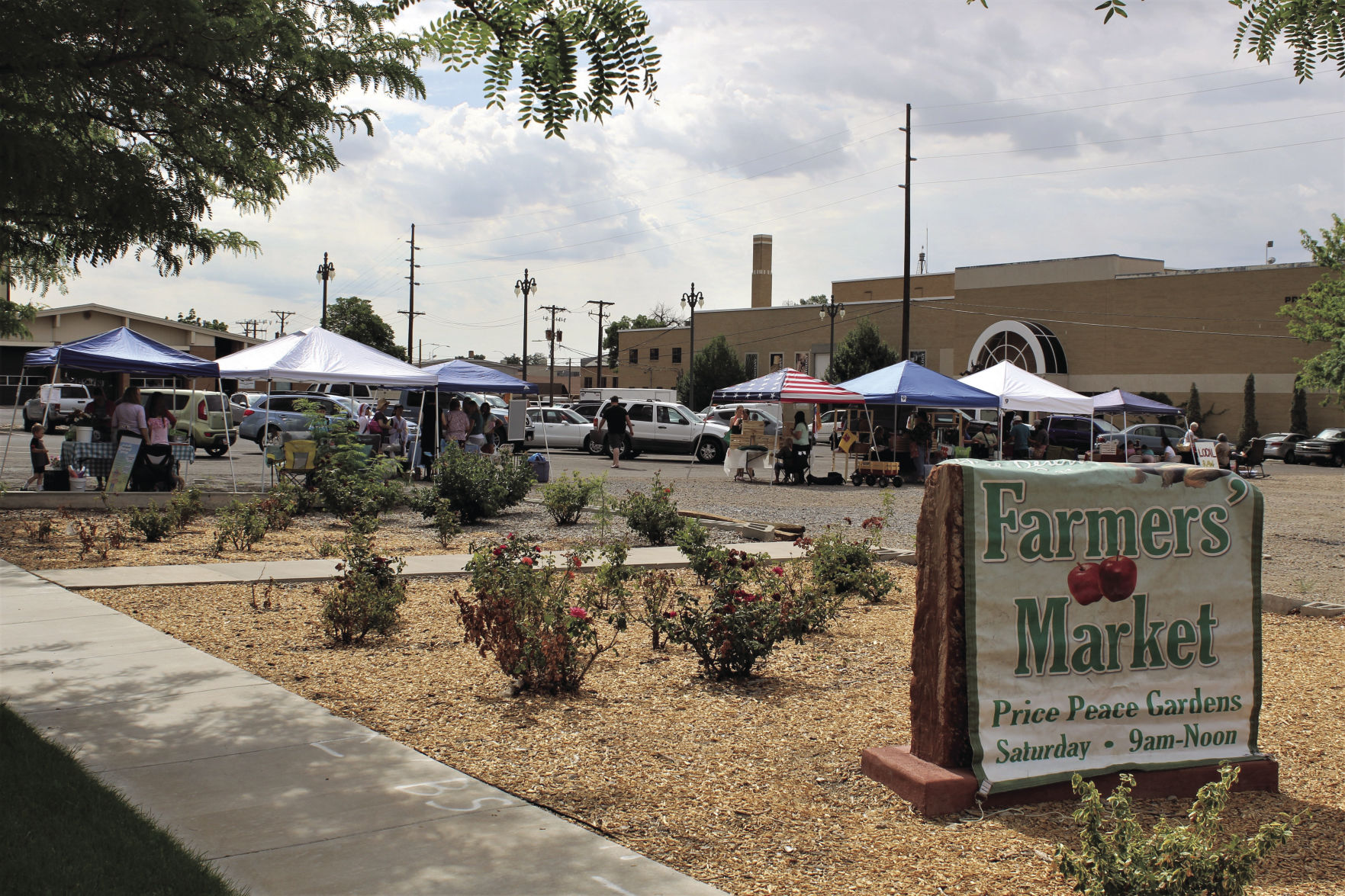SUPPORT YOUR LOCAL FARMERS MARKET
National Farmers Market Week starts on Sunday. To celebrate, Price Farmers Market is holding a contest—you can find them on Facebook—and giving out prizes.
The Price Farmers Market started up again on July 14. It opens at 9 a.m. every Saturday near the Prehistoric Museum and the Peace Gardens.
The market is open until noon. Visitors can expect to find a selection of locally produced fruit, vegetables, flowers, baked goods, eggs, honey and more.
The Saturday morning market will remain open through Oct. 27.
Supporting local farmers markets are important. Not only are they a source of nutritious food, but also they offer a low barrier for local entrepreneurs and people new to farming and ranching. That’s important because farming and ranching are a shrinking business in the United States. According to the Farmers Market Coalition, there are 3.5 times more farmers older than 65 than under 35.
Shopping at your local grocery store doesn’t come close to offering the kind of financial incentives to farmers to grow the industry for the next generation.
According to the coalition, farmers only receive 15 cents for every dollar customers spend at a grocery store. At a farmers market, it’s 100 cents per dollar.
In 2015, $711 million was spent at farmers markets in the U.S. In 2015, $711 million was spent at farmers markets in the U.S., proving there is big business in locally-sourced food.
According to the coalition, farmers markets are also among the most trusted sources of local food, followed by natural food stores and niche groceries.
The U.S. Dept. of Agriculture’s National Agricultural Statistics Service released 2015 numbers that showed that 80 percent of customers at farmers markets live within 100 miles of the farm or ranch where the produce was harvested.
A study by the American Farm Bureau suggests as much as 72 percent of consumers have no idea what goes into creating a successful farm or ranch. Thus, farmers markets offer consumers an opportunity to learn about the food they are eating, how it’s grown, what types of farming are done and more.
The markets then become an educational opportunity—food for thought as well as nourishment.
Knowing all this, the question becomes: why wouldn’t you patronize a local farmers market this summer and fall?

